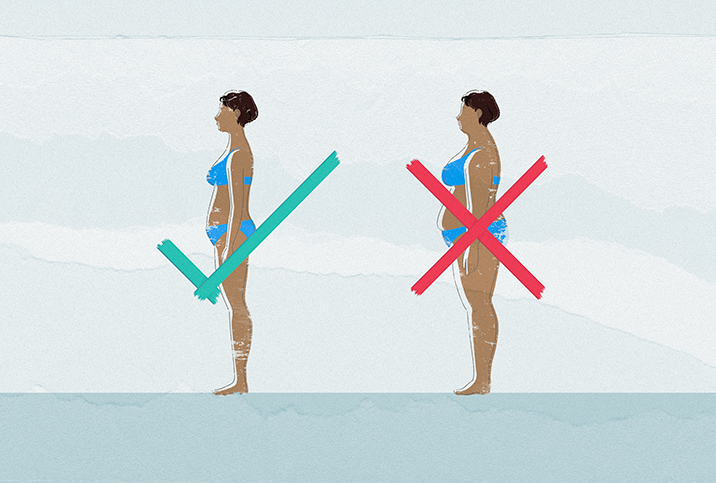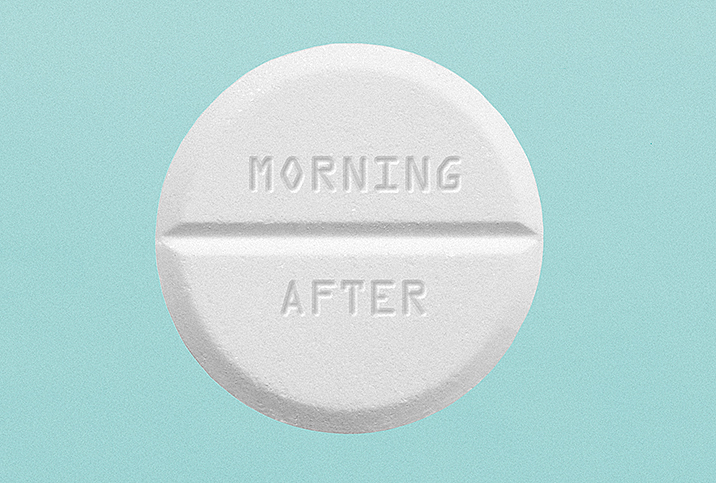Does Plan B Have a Weight Limit?

If you've ever had unprotected sex or had birth control fail, chances are you've taken a Plan B pill. This over-the-counter emergency contraceptive (typically found at your local drugstore) contains the active ingredient levonorgestrel, which works by stopping the release of an egg from the ovary to prevent fertilization of the egg, and, therefore, prevent pregnancy. It's used in emergency cases: When a condom falls off, when someone comes inside of you or when you forgot to take the pill.
The most common brands of levonorgestrel emergency contraceptives include Plan B, Plan B One-Step, Next Choice and My Way. According to Plan B One-Step's website, this progestin-only pill must be taken within 72 hours of unprotected sex for the best results. When taken as directed, about 7 out of every 8 women who could have gotten pregnant did not after taking Plan B.
Plan B's side of the story
According to Plan B One-Step's website, there is no weight limit for levonorgestrel emergency contraceptives.
"All women, regardless of how much they weigh, can use these products to prevent unintended pregnancy following unprotected sex or contraceptive failure," states their website. "The most important factor affecting how well emergency contraception works is how quickly it is taken. When emergency contraception is taken as directed within 72 hours after unprotected sex or birth control failure, it can significantly decrease the chance that a woman will get pregnant."
Plan B One-Step's statement mirrors an assessment by the U.S. Food & Drug Administration (FDA) that the pill is safe regardless of a woman's weight. They came to this conclusion after examining the available scientific data concerning the effectiveness of Plan B in women who weigh more than 165 pounds or have a BMI of more than 25.
"Because these data are conflicting and too limited to make a definitive conclusion, the FDA does not believe that a change in the labeling for [levonorgestrel] LNG [emergency contraceptives] EC products is warranted at this time," the FDA stated. "The FDA continues to believe all women, regardless of how much they weigh, can use these products to prevent unintended pregnancy following unprotected sexual intercourse or contraceptive failure."
So why do we think it doesn't work?
The idea that emergency contraceptives weren't as effective after a certain BMI came from a 2012 study published in Contraception that said Plan B is less effective in women weighing 165 pounds and not effective at all in women weighing more than 175 pounds. Because of this study, HRA Pharma, the French manufacturer of Norlevo (a levonorgestrel-containing emergency contraceptive in Europe), submitted data to European regulators that its product was less effective for women weighing 165 pounds.
Although this idea that Plan B only worked on women with a certain weight began to spread, both the European Medicines Agency (EMA) and the FDA reviewed the data and determined that it was too limited and conflicting. Therefore, no official guidelines have been changed regarding weight limits on Plan B.
What should you do?
It can be hard to not worry about a weight limit if you need a morning-after pill and you weigh more than 165 pounds.
"People, regardless of how much they weigh, should be able to take Plan B and expect that it will have an efficacy rate of 75 to 89 percent (if taken within three days of unprotected sex)," said Amy Roskin, M.D., a medical director from digital health company The Pill Club. Roskin recommends speaking to a doctor or licensed professional for more insight.
Some doctors believe that Plan B may be less effective after a certain weight limit, but concede that it's still better than nothing.
"Higher weight may make Plan B less effective, and therefore increase the risk of pregnancy, but it doesn't make the medication dangerous to use," said Kate White, M.D., M.P.H., an associate professor of OB-GYN at the Boston University School of Medicine and the author of "Your Guide to Miscarriage and Pregnancy Loss." "So, if Plan B is the only EC (emergency contraceptive) that you can access, it's better to take Plan B than nothing at all, even if you have higher weight."
What are my other options?
If you don't want to take Plan B, but you also don't want to get pregnant, you have other paths to pursue.
White suggests asking your clinician for a prescription for ella, the other FDA-approved oral emergency contraceptive that is available by prescription only. You can request a prescription in advance of needing it so you will always have some on hand in case of emergency. "Most people don't buy Tylenol when they have a headache, or Band-Aids when they cut themselves—they buy them in advance and have them in the medicine cabinet," said White. "Think about EC in the same way. Fill the prescription and tuck your dose into your nightstand or purse, so it will be on hand if and when you ever need it."
Keep in mind that ella has a BMI limit of 35 or higher. "Ella will work for up to five days after intercourse, though ella does lose effectiveness for people with a BMI of 35 or higher," explained White.
If you do have a BMI of 35 or higher, White mentioned another option: having a copper or hormonal IUD placed within five days of unprotected sex.
'A hormone-releasing IUD is just as effective as emergency contraception and more effective than oral emergency contraceptives.'
"You can have the copper IUD or certain hormonal IUDs placed within five days of intercourse," said White. "IUDs are actually the most effective form of EC, no matter what you weigh. And if you don't want to continue using an IUD for ongoing birth control, your clinician can simply pull it out when you get your next period."
A hormone-releasing IUD is just as effective as emergency contraception and more effective than oral emergency contraceptives, according to a 2021 study funded by the Eunice Kennedy Shriver National Institute of Child Health and Human Development.
"Study participants using the levonorgestrel IUD had a 0.3 percent pregnancy rate, compared to the 1.4 to 2.6 percent pregnancy rate for oral emergency contraceptives reported by other studies," stated the research. "Currently, only pill formulations have been approved as emergency contraception by the U.S. Food and Drug Administration (FDA)."
So, if you are able to get in to see your provider in enough time, getting an IUD might be the best option for you.
If you are worried about Plan B's effectiveness due to your weight or have any other questions or concerns, talk to your OB-GYN to learn about your options to prevent pregnancy.


















